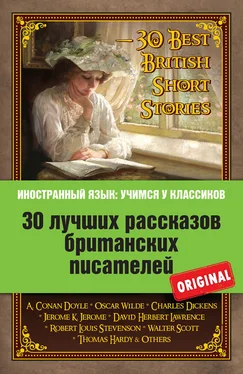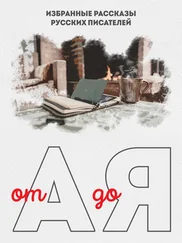‘Ell, how silly this is!’ he said indignantly. ‘Running away from home – I never heard such a thing! Of course I am not jealous of this unfortunate man; but it is too ridiculous that you, a married woman with three children and a fourth coming, should go losing your head like this over a dead lover!… Do you know you were locked in? You might not have been able to get out all night.’
She did not answer.
‘I hope it didn’t go far between you and him, for your own sake.’
‘Don’t insult me, Will.’
‘Mind, I won’t have any more of this sort of thing; do you hear?’
‘Very well,’ she said.
He drew her arm within his own, and conducted her out of the Cemetery. It was impossible to get back that night; and not wishing to be recognized in their present sorry condition he took her to a miserable little coffee-house close to the station, whence they departed early in the morning, traveling almost without speaking, under the sense that it was one of those dreary situations occurring in married life which words could not mend, and reaching their own door at noon.
The months passed, and neither of the twain ever ventured to start a conversation upon this episode. Ella seemed to be only too frequently in a sad and listless mood, which might almost have been called pining. The time was approaching when she would have to undergo the stress of childbirth for a fourth time, and that apparently not tend to raise her spirits.
‘I don’t think I shall get over it this time!’ she said one day. ‘Pooh! what childish foreboding! Why shouldn’t it be as well now as ever?’
She shook her head. ‘I feel almost sure I am going to die; and I should be glad, if it were not for Nelly, and Frank, and Tiny.’
‘And me!’
‘You’ll soon find somebody to fill my place,’ she murmured, with a sad smile. ‘And you’ll have a perfect right to; I assure you of that.’
‘Ell, you are not thinking still about that – poetical friend of yours?’
She neither admitted nor denied the charge. ‘I am not going to get over my illness this time,’ she reiterated. ‘Something tells me I shan’t.’
This view of things was rather a bad beginning, as it usually is; and, in fact, six weeks later, in the month of May, she was lying in her room, pulseless and bloodless, with hardly strength enough left to follow up one feeble breath with another, the infant for whose unnecessary life she was slowly parting with her own being fat and well. Just before her death she spoke to Marchmill softly: –
‘Will, I want to confess to you the entire circumstances of that – about you know what – that time we visited Solentsea. I can’t tell what possessed me – how I could forget you so, my husband! But I had got into a morbid state: I thought you had been unkind; that you had neglected me; that you weren’t up to my intellectual level, while he was, and far above it. I wanted a fuller appreciator, perhaps, rather than another lover–’
She could get no further then for very exhaustion; and she went off in sudden collapse a few hours later, without having said anything more to her husband on the subject of her love for the poet. William Marchmill, in truth, like most husbands of several years’ standing, was little disturbed by retrospective jealousies, and had not shown the least anxiety to press her for confessions concerning a man dead and gone beyond any power of inconveniencing him more.
But when she had been buried a couple of years it chanced one day that, in turning over some forgotten papers that he wished to destroy before his second wife entered the house, he lighted on a lock of hair in an envelope, with the photograph of the deceased poet, a date being written on the back in his late wife’s hand. It was that of the time they spent at Solentsea.
Marchmill looked long and musingly at the hair and portrait, for something struck him. Fetching the little boy who had been the death of his mother, now a noisy toddler, he took him on his knee, held the lock of hair against the child’s head, and set up the photograph on the table behind, so that he could closely compare the features each countenance presented. By a known but inexplicable trick of Nature there were undoubtedly strong traces of resemblance to the man Ella had never seen; the dreamy and peculiar expression of the poet’s face sat, as the transmitted idea, upon the child’s, and the hair was of the same hue.
‘I’m damned if I didn’t think so!’ murmured Marchmill. ‘Then she did play me false with that fellow at the lodgings! Let me see: the dates – the second week in August… the third week in May… Yes… yes… Get away, you poor little brat! You are nothing to me!’
The Grave by the Hand-post
I never pass through Chalk-Newton without turning to regard the neighbouring upland, at a point where a lane crosses the lone straight highway dividing this from the next parish; a sight which does not fail to recall the event that once happened there; and, though it may seem superfluous, at this date, to disinter more memories of village history, the whispers of that spot may claim to be preserved.
It was on a dark, yet mild and exceptionally dry evening at Christmas-time (according to the testimony of William Dewy of Mellstock, Michael Mail, and others), that the choir of Chalk-Newton – a large parish situate about half-way between the towns of Iveland Casterbridge, and now a railway station – left their homes just before midnight to repeat their annual harmonies under the windows of the local population. The band of instrumentalists and singers was one of the largest in the county; and, unlike the smaller and finer Mellstock string-band, which eschewed all but the catgut, it included brass and reed performers at full Sunday services, and reached all across the west gallery.’
On this night there were two or three violins, two ’cellos, a tenor viol, double bass, hautboy, clarionets, serpent, and seven singers. It was, however, not the choir’s labours, but what its members chanced to witness, that particularly marked the occasion.
They had pursued their rounds for many years without meeting with any incident of an unusual kind, but to-night, according to the assertions of several, there prevailed, to begin with, an exceptionally solemn and thoughtful mood among two or three of the oldest in the band, as if they were thinking they might be joined by the phantoms of dead friends who had been of their number in earlier years, and now were mute in the churchyard under flattening mounds – friends who had shown greater zest for melody in their time than was shown in this; or that some past voice of a semi-transparent figure might quaver from some bedroom-window its acknowledgment of their nocturnal greeting, instead of a familiar living neighbour. Whether this were fact or fancy, the younger members of the choir met together with their customary thoughtlessness and buoyancy. When they had gathered by the stone stump of the cross in the middle of the village, near the White Horse Inn, which they made their starting point, someone observed that they were full early, that it was not yet twelve o’clock. The local waits of those days mostly refrained from sounding a note before Christmas morning had astronomically arrived, and not caring to return to their beer, they decided to begin with some outlying cottages in Sidlinch Lane, where the people had no clocks, and would not know whether it were night or morning. In that direction they accordingly went; and as they ascended to higher ground their attention was attracted by a light beyond the houses, quite at the top of the lane.
The road from Chalk-Newton to Broad Sidlinch is about two miles long and in the middle of its course, where it passes over the ridge dividing the two villages, it crosses at right angles, as has been stated, the lonely monotonous old highway known as Long Ash Lane, which runs, straight as a surveyor’s line, many miles north and south of this spot, on the foundation of a Roman road, and has often been mentioned in these narratives. Though now quite deserted and grass-grown, at the beginning of the century it was well kept and frequented by traffic. The glimmering light appeared to come from the precise point where the roads intersected.
Читать дальше
Конец ознакомительного отрывка
Купить книгу












